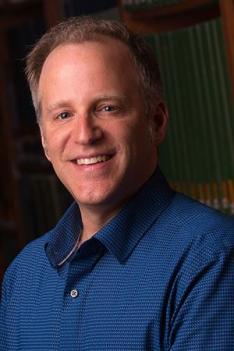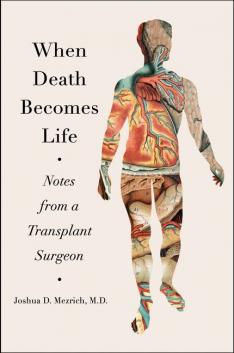Intertwined with this remarkable advancement in science are serious bioethical and philosophical concerns. Should a patient suffering from alcoholism receive a healthy liver? How much risk should a healthy person take to save some they love? When Death Becomes Life engages with these tough questions, leaving readers fresh insight on life and death in this highly accessible memoir.
The author: Dr. Joshua Mezrich ’93 is an associate professor of surgery in the division of multi-organ transplantation at the University of Wisconsin School of Medicine and Public Health. He was named one of Madison Magazine’s Top Doctors in 2016. When Death Becomes Life is his first book.
Opening lines: While I’d been on planes many times, I’d never experienced the full power of a thunderstorm at ten thousand feet. The small King Air, a six-passenger dual prop, was bouncing around uncontrollably. Every few seconds, it would go into free fall and then hurl itself back up violently. The two pilots in the cockpit were hitting nobs and dials, trying to silence the various alarms that sounded as we rocked violently back and forth. It didn’t help that our physician’s assistant Mike, who had been on hundreds of flights in small planes before was screaming uncontrollably, “We’re gonna die! We’re gonna die!”Given that Mike was such a seasoned member of our team, I could only assume that this particular flight was going badly. When the pilots glanced back to see the source of the screaming and cursing, I could make out the fear in their eyes. I looked at the spinning altimeter and noted that our plane was popping up and down as much as a thousand feet at a time. Outside the window, the lightning was shooting horizontally. The rain was constant and loud, and I was sure I heard pieces of hail hitting the windshield.
It was the third month of my transplant fellowship at the University of Wisconsin. I hadn’t chosen transplant surgery so I could fly through thunderstorms in the middle of the night over the fields of central Wisconsin. Hell, I’d grown up in New Jersey, spent most of my life in the Northeast, and had never known anything about the Midwest. I had been drawn to Madison because it is one of the best places to be a transplant fellow. I was learning how to perform kidney, liver, and pancreas transplants, and how to take care of these complicated patients while they waited for organs and then recovered from their surgeries.
One unique part of the discipline of transplantation is the procurement of organs from donors. While we do perform transplants, particularly kidneys, from living donors, the majority comes from people who have just died. Rather than transporting donors, who typically remain on a ventilator, brain dead but with a beating heart, we send a team out first, to meet with their families to thank them for their gift and then to perform the surgery to remove their organs. We then take those organs back for transplant into waiting patients.
On this particular day, I’d received a phone call at around 5:00 p.m. telling me to come to the OPO (organ procurement organization) at 9:00 p.m., for wheels up at 9:30. The thirty-minute flight from Madison to La Crosse had been without incident. We arrived at the donor hospital at around 10:30. The donor was a young man (almost a boy) who had died in a motorcycle accident. That detail is easy to remember, as Wisconsin, being the land of Harley (not to mention a state where wearing a helmet is frowned upon), produces a never-ending supply of donor’s who’ve died in motorcycle accidents. In the winter, it’s snowmobile accidents, the snowmobile being the vehicle of choice for bar hopping in the evenings—which sounds like fun but is also incredibly dangerous, given the power of those machines.
After we examined the donor at the hospital in La Crosse, confirming his identity and blood type, and went over the paperwork, including the declaration of brain death, we met with his family.
This continues to be both the most difficult and, at the same time, most rewarding aspects of my job. No matter how tired I am, the interaction with the donor family always reminds me how wonderful and cathartic the donation process is. These people are going through the worst experience of their lives, as most donors die far too young and unexpectedly. Often, the family members have not even had the opportunity to say good-bye. Perhaps the one positive notion that family members can hold on to is this: With this ultimate gift, their loved one will save the lives of, and live on in, as many as seven other people. Their gift of life will be a legacy their families can cherish amid the brutal pangs of loss they had to endure.
Reviews: “An outstanding memoir by a transplant surgeon, who combines an autobiography and operating room dramatics with an equally engrossing history of his profession…Medical memoirs have become a significant genre over the past two decades, and this one ranks near the top, in a class that includes the best.” – Kirkus Reviews (starred review)


